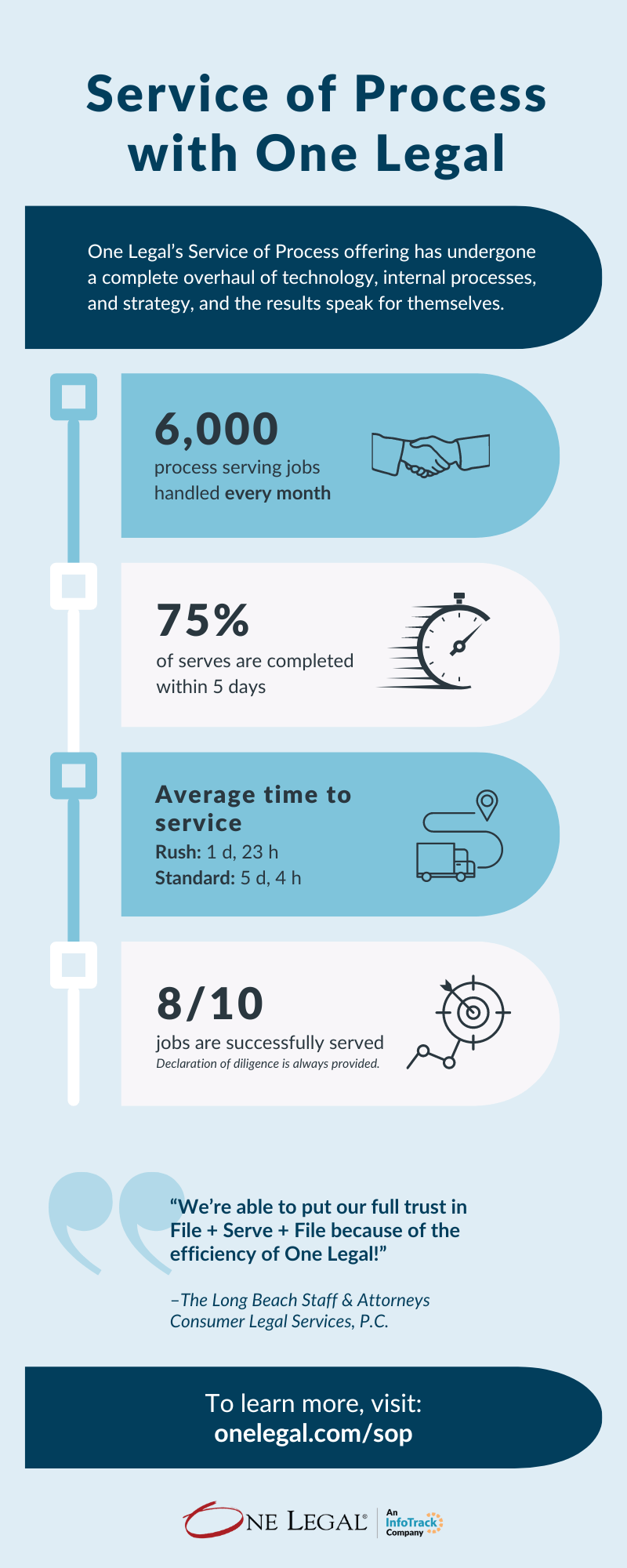Understanding the Value of Process Serving in Lawful Treatments
Process serving is a fundamental aspect of lawful procedures that ensures all celebrations are educated of their legal rights and obligations. By assisting in the official delivery of crucial legal papers, it maintains the principles of due process and adds to the integrity of the judicial system. Nevertheless, the subtleties of effective procedure serving prolong beyond simple shipment; they incorporate lawful needs and potential effects of improper solution. Recognizing these details can considerably influence the results of lawful disputes, prompting a better examination of the practices that underpin this crucial function.
Meaning of Refine Serving
Refine serving is an important element of the legal system, specified as the formal shipment of legal records to people involved in a lawsuit. This procedure makes certain that all events are properly notified of lawsuits being taken against them or to which they are a celebration. Typically, these files consist of summons, grievances, subpoenas, and other court-related documents that require the recipient's interest and reaction.
The importance of process offering hinge on its function in supporting the concepts of due procedure. It assures that individuals have notification of lawful process, thus giving them an opportunity to react or protect themselves. Proper service of process is not just a procedural formality; it is a basic facet of ensuring justness and transparency in the judicial system.
Refine serving can be performed by various people, consisting of specialist procedure servers, law enforcement police officers, or even lawyers, relying on administrative policies. Each technique of solution has its very own standards and practices, which are critical to stop hold-ups or dismissals within the lawful structure. Understanding the meaning and function of procedure offering is vital for all stakeholders included in lawful process.

Lawful Demands for Refine Offering
Lawful needs for procedure offering are important to ensure that the shipment of legal files adheres to developed procedures and is identified by the court. Each jurisdiction has specific legislations controling exactly how and when papers should be served, which might consist of problems, subpoenas, and summonses.
Typically, procedure servers have to be unbiased 3rd parties who are not entailed in the situation. They need to also conform with state guidelines pertaining to solution methods, which can consist of personal service, substitute service, or service by mail. Individual service includes supplying papers straight to the recipient, while replacement solution permits delivery to an additional responsible individual at the recipient's residence or workplace.
Furthermore, process web servers are normally needed to file a proof of service, a lawful record that validates the distribution of papers, with the court. This file consists of details such as the date, time, and approach of solution, in addition to the name of the individual offered.

Duty in the Justice System
A vital element of the justice system, process offering makes certain that individuals included in legal procedures are appropriately alerted of actions taken versus them (Process Serving). This formal alert is important for promoting the principles of due process, which mandates that events have the possibility to react to insurance claims made versus them. Without efficient process serving, the lawful system would certainly be rendered inefficient, as individuals might involve in activities without understanding of pending legal issues
Refine web servers offer a vital duty in guarding the integrity of the lawful procedure. They act as neutral parties, providing lawful papers such as summons, complaints, and subpoenas, thus fostering openness and advice liability within the judicial structure. By ensuring that all parties are educated, process offering helps to avoid any prospective unreasonable benefit, allowing for equitable participation in legal process.
Additionally, the professionalism and trust of process-server contributes to the general public's count on the justice system. Their adherence to lawful criteria and ethical practices reinforces the authenticity of the judicial process. Inevitably, efficient procedure offering is indispensable in advertising the regulation of regulation and making sure that justice is obtainable why not find out more to all people entailed in legal disagreements.
Effects of Improper Solution
The consequences of improper service can significantly threaten the integrity of lawful procedures. Incorrect service can result in the defendant not being aware of the lawful activity against them, which might prevent them from reacting properly or presenting their protection.
In addition, improper service can provide court orders and judgments invalid, forcing the complainant to reactivate the process, which can be both economically troublesome and lengthy. It can likewise open up the door to allures and obstacles, as the accused may argue that they were not appropriately informed of the proceedings, complicating the legal landscape further.
Finest Practices for Effective Service

Second, timing plays an important duty. Serving files without delay can avoid delays in legal proceedings and ensure that all parties are notified in a timely manner. In addition, working with an expert process-server can enhance performance, as they are trained to navigate prospective obstacles and make sure compliance with local laws.
Third, preserving exact documents of the service procedure is essential. If disagreements occur concerning whether service was properly implemented., documenting the date, time, and manner of solution can supply critical proof.
Conclusion
In verdict, process serving is an important component of lawful procedures, ensuring that all events are properly informed and managed the chance to react. Abiding by legal demands and best techniques not only supports the principles of due process but also reinforces the honesty of the justice system. The consequences of incorrect service can cause substantial delays and issues, highlighting the necessity for effective process serving in advertising fairness and access in lawful disputes.
The nuances of reliable process offering expand past plain shipment; they incorporate lawful needs and potential effects of inappropriate service.Refine offering is an essential element of the lawful system, defined as the formal distribution of legal records to people included in a court instance. Without reliable procedure serving, the legal system would be made inefficient, as individuals might engage in activities without recognition of pending legal matters.
Process servers offer a vital duty in guarding check here the honesty of the legal process - Process Serving. The consequences of inappropriate solution can lead to significant delays and issues, highlighting the necessity for reliable procedure serving in promoting fairness and accessibility in lawful disagreements